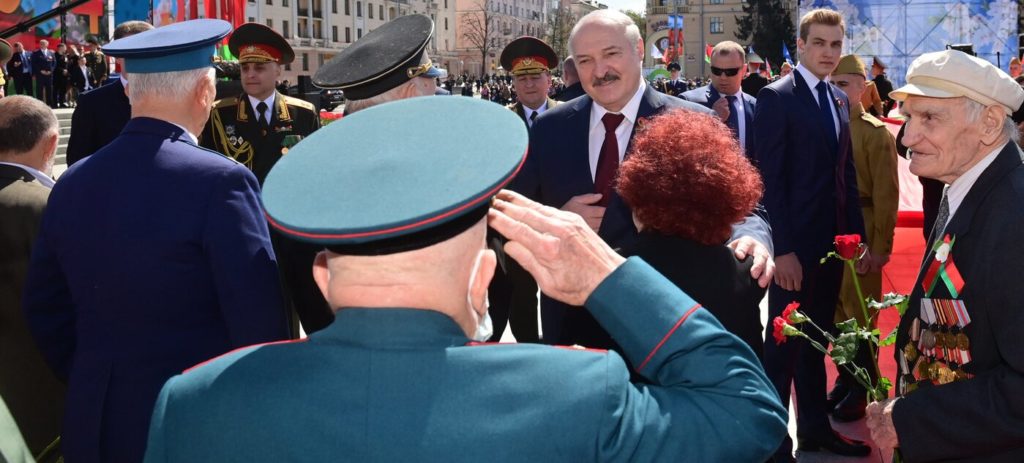MINSK
An intensification of Western economic sanctions on Belarus after this week’s diversion of a scheduled flight could trigger a downgrade in the country’s international financial rating, Standard & Poor (S&P) Global was quoted as saying.
The warning was issued as Belarusian President Alexander Lukashenko stoutly defended the action to divert the aircraft to Minsk and the subsequent detention of a dissident journalist, saying he was protecting his people and acting to prevent a “bloody rebellion” plotted by his opponents.
Lukashenko has been accused of a long list of human rights abuses since coming to power in 1994, including a rigged election last year that gave him a sixth term in office.
He has come to rely increasingly on Russia for diplomatic and financial support and is due to hold the latest of his increasingly frequent meetings with Kremlin leader Vladimir Putin on Friday.
S&P, in a comment to the Reuters news agency, said Belarus’s current ‘B’ credit score took due account of risks in the country, jolted last year by mass demonstrations against Lukashenko’s re-election.
The rating agency’s main Belarus analyst, Karen Vartapetov, said new punitive actions aimed at the country’s economy could depress that rating further.
“That could be key to the credit story,” Vartapetov told Reuters. “What we have seen opens the door to stronger sanctions.”
Further action on the country’s rating, she said, depended largely on whether Russia indicated it was willing to continue supporting Belarus financially.
S&P placed a negative outlook on Belarus’ rating last September as mass demonstrations against Lukashenko’s re-election unfolded in Belarusian cities.
S&P said then that it could lower the rating if the government’s access to foreign capital markets was reduced and credit lines from Russia and other allies proved insufficient to meet debt repayments.
At times, more than 100,000 protesters massed in Minsk and other cities, but brutal police tactics put a stop to the demonstrations and Lukashenko appears fully in charge of the affairs of the state.
Turning to Russian bond markets
The Belarusian government has indicated that it intends to turn to Russian bond markets to raise money to finance its budget.
Lukashenko signed off on a decree on May 15 authorising the sale of 100 billion Russian roubles ($1.35 billion) over the next two years.
Belarus has already received about $1.5 billion in debt relief for loans that Minsk owes to Russian state-owned companies. These have been restructured and moved from the company balance sheets to become sovereign debt.
The European Union responded in an uncharacteristic prompt fashion to Sunday’s diversion to Minsk of a Ryanair flight from Athens to Vilnius by barring the Belarusian airline Belavia from European airports and urging airlines to avoid overflying Belarus.
The EU said it could follow up with more economic sanctions, but these could prove more difficult to introduce and impose. Lukashenko and other top officials already face travel bans and other punitive measures in connection with the heavy police crackdown on demonstrations.
Roman Protosevich, 26, the journalist detained after the plane touched down in Minsk was based in neighbouring Lithuania and had previously been editor of the main opposition media outlet in the country that heavily criticised Lukashenko’s re-election.
He has appeared in a video apparently acknowledging his guilt in inciting unrest. His Russian girlfriend, also detained, appeared in a similar video saying she had been collecting data on members of the Belarusian security forces.
Other opposition activists, many also living in exile in Lithuania, has expressed fears for the safety of both detainees.

